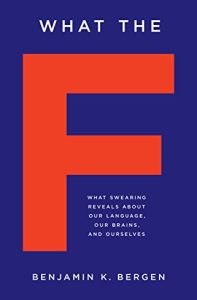
What the F
What Swearing Reveals About Our Language, Our Brains, and Ourselves
Recommendation
Benjamin K. Bergen, professor of cognitive science and director of the Language and Cognition Laboratory at the University of California, San Diego, attempts a cognitive, cultural, historical and linguistic consideration of profanity. He explores the taxonomy of cursing, its grammar, and its cultural and linguistic uses, delving into how it evolved and continues to evolve. He explains how cursing affects the person using it and the person – and society – perceiving the curse. Bergen writes perceptively about how slur-based curses – those attacking a person’s identity – cause harm. Though Bergen attempts a Malcom Gladwell–style exploration of his subject, he occasionally loses his way or seeks a jocular tone at odds with his material. Still, his appreciation for and willingness to analyze cursing seems boundless. He derives fascinating conclusions about cursing’s place in grammar, society and language. getAbstract, which recommends his exploration of the entire range of curse words to those interested in language, follows professional guidelines regarding polite language, so any time you read the word “damn” here, please imagine the most obscene word that springs to mind. Bergen knows them all and revels in their usage.
Summary
About the Author
Benjamin K. Bergen is a professor of cognitive science and the director of the Language and Cognition Laboratory at the University of California, San Diego. He publishes in his field’s top journals, as well as with HuffPost and Psychology Today. He is also the author of Louder than Words: The New Science of How the Mind Makes Meaning.








Comment on this summary